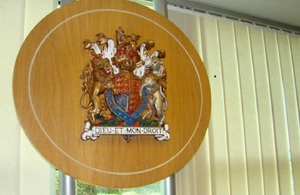Data sharing framework for the GRADE project published
Guidance for researchers wishing to access the GRADE (Grading and Admissions Data for England) data set, which covers the years 2017 to 2020, is now available.
The data sharing framework sets out the application and review process to access the data. It clarifies the requirements that accredited external researchers must meet before gaining access to the data set to conduct research on the educational, assessment and admissions systems in England.
The GRADE project is a joint open data initiative by Ofqual, Ofsted, the Department for Education (DfE) and UCAS, launched in 2021. It is designed to encourage independent research that will enhance the quality of the qualification system. The linked data from Ofqual, the DfE and UCAS is a rich resource that will enable external researchers to make independent, high-quality evaluations of the judgements reached in awarding grades. It includes detailed information on the qualifications taken, such as subject, awarding organisation and tier of entry, for GCSEs and A levels. It also has information about pupils, such as age, gender, socio-economic background and prior levels of attainment, including teacher assessments and test results for Key Stages 1 and 2, and information about university applications, offers and acceptances.
Between 2017 to 2019, grades and marks achieved by students are made available. For 2020, when exams were cancelled, it includes details of the centre assessment grades and calculated grades for each student.
Ofqual Executive Director for Standards, Research and Analysis, Cath Jadhav, said:
The GRADE project is a ground-breaking initiative that demonstrates Ofqual’s commitment to openness and transparency by allowing independent researchers access to a wealth of information to gain valuable insights about the assessment process.
For the first time accredited researchers will have access to cross-referenced data shared by Ofqual, the Department for Education and UCAS. Their research will inform future policy about education, assessment and university applications.
Ofqual is committed to putting the interests of students first and I am pleased that the Office for Statistics Regulation has commended the GRADE project.
There are 2 top requirements researchers must meet:
- Become an accredited researcher with the Office for National Statistics. Full guidance on how to apply is available on the UK Statistics Authority website.
- Gain approval for their specific research project from the Office for National Statistics Secure Research Service and from data owners by submitting details of their research project and how it will benefit the public good, via an application for project accreditation in the Research Accreditation Service.
Data can only be accessed for valuable and ethical research that delivers clear public benefits. Commercial and operational uses of the data will not be allowed.
Strict security controls are in place to ensure the privacy and security of the data, given the wealth of information contained in the dataset about students. Data is de-identified and pseudo-anonymised and access to it will only be provided in safe settings.


